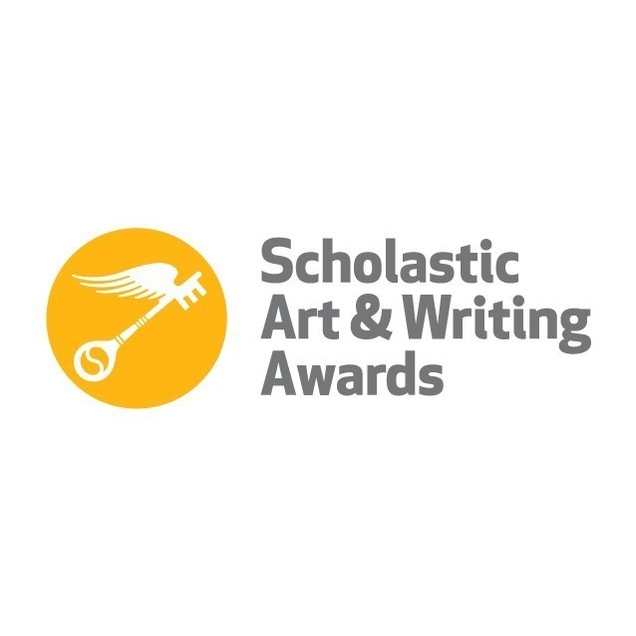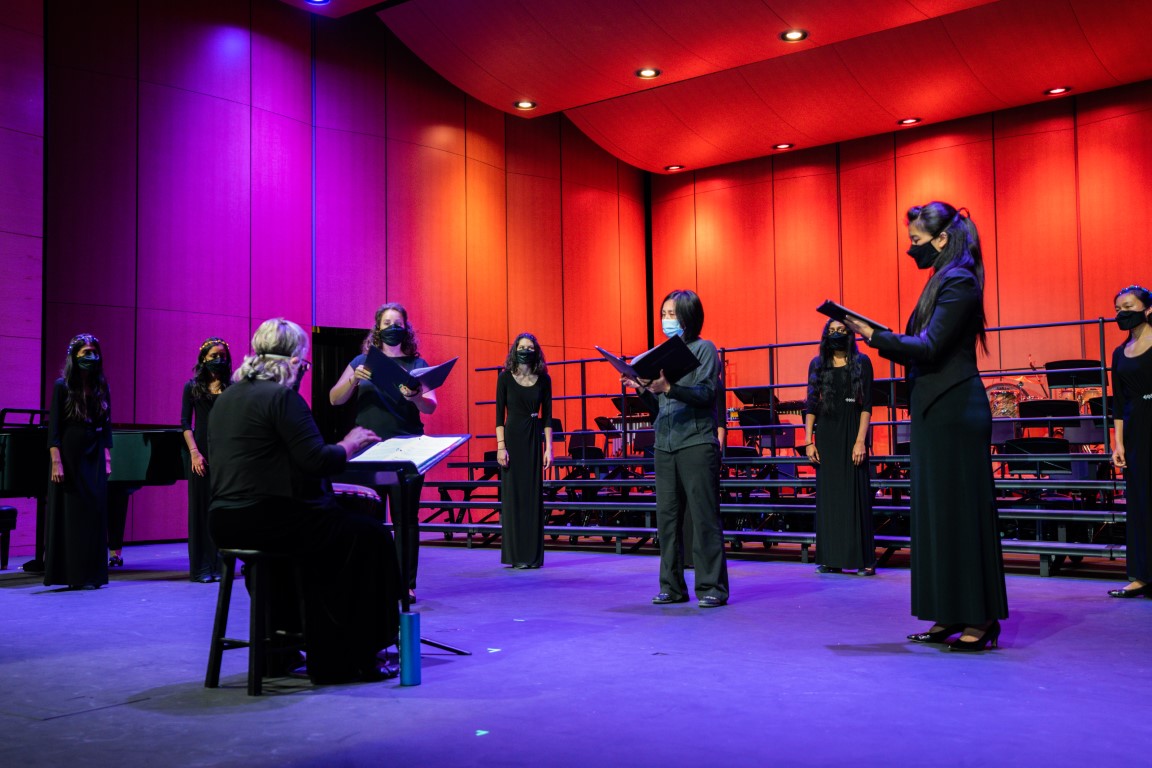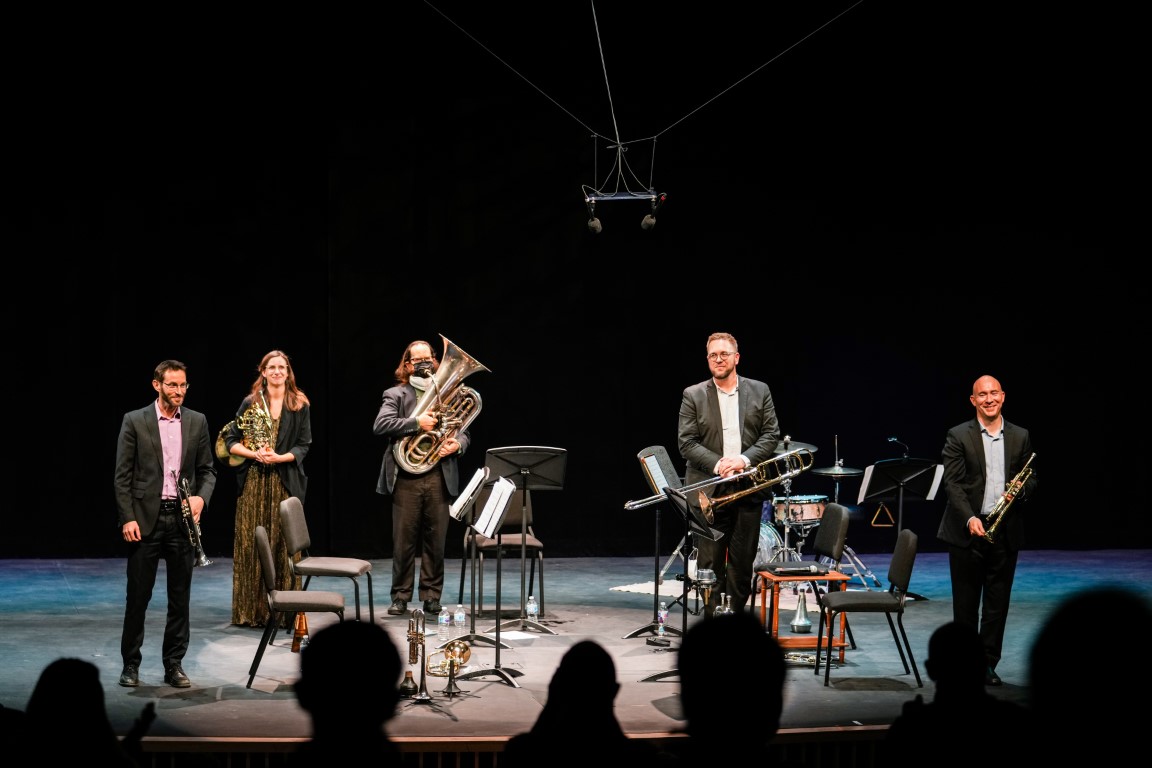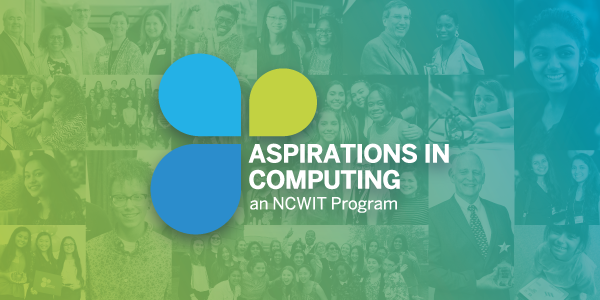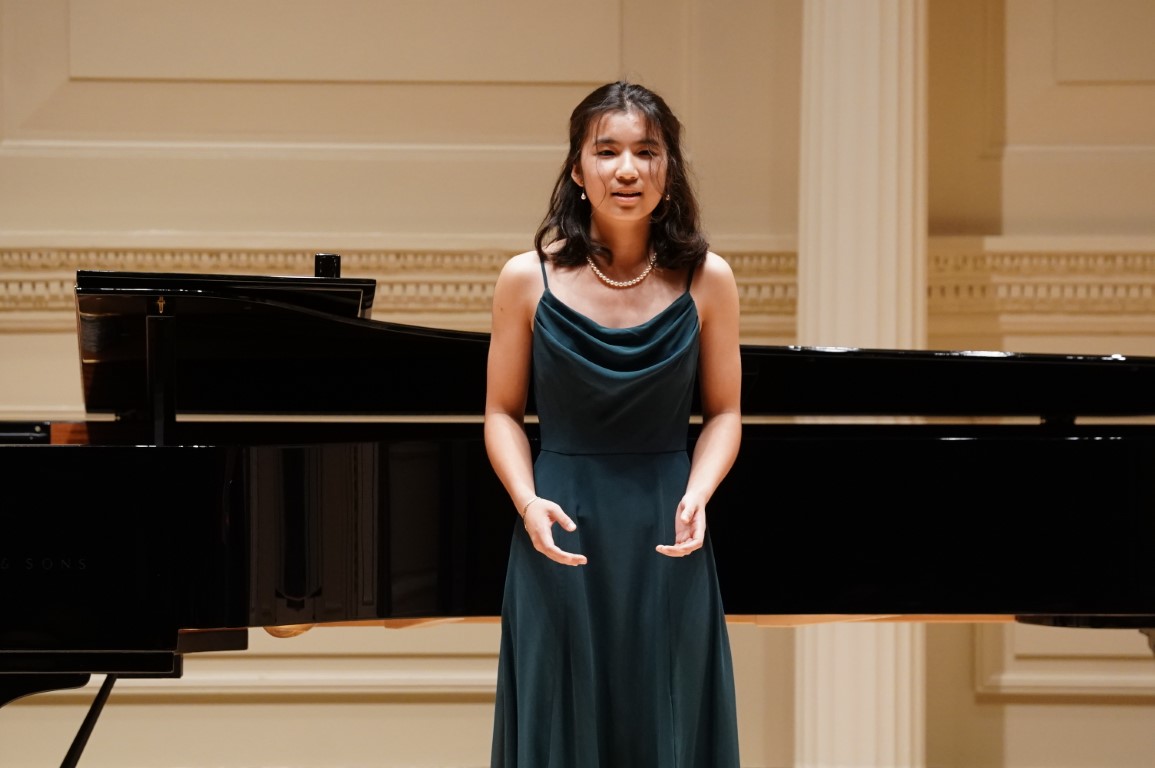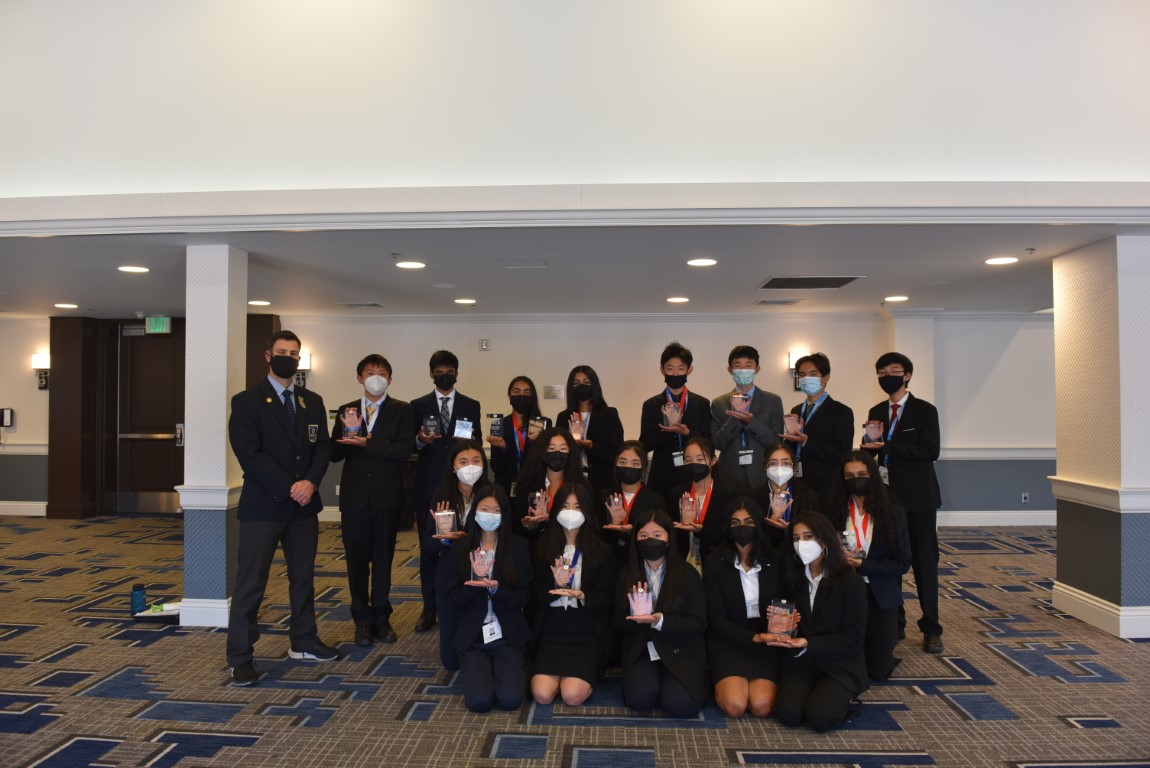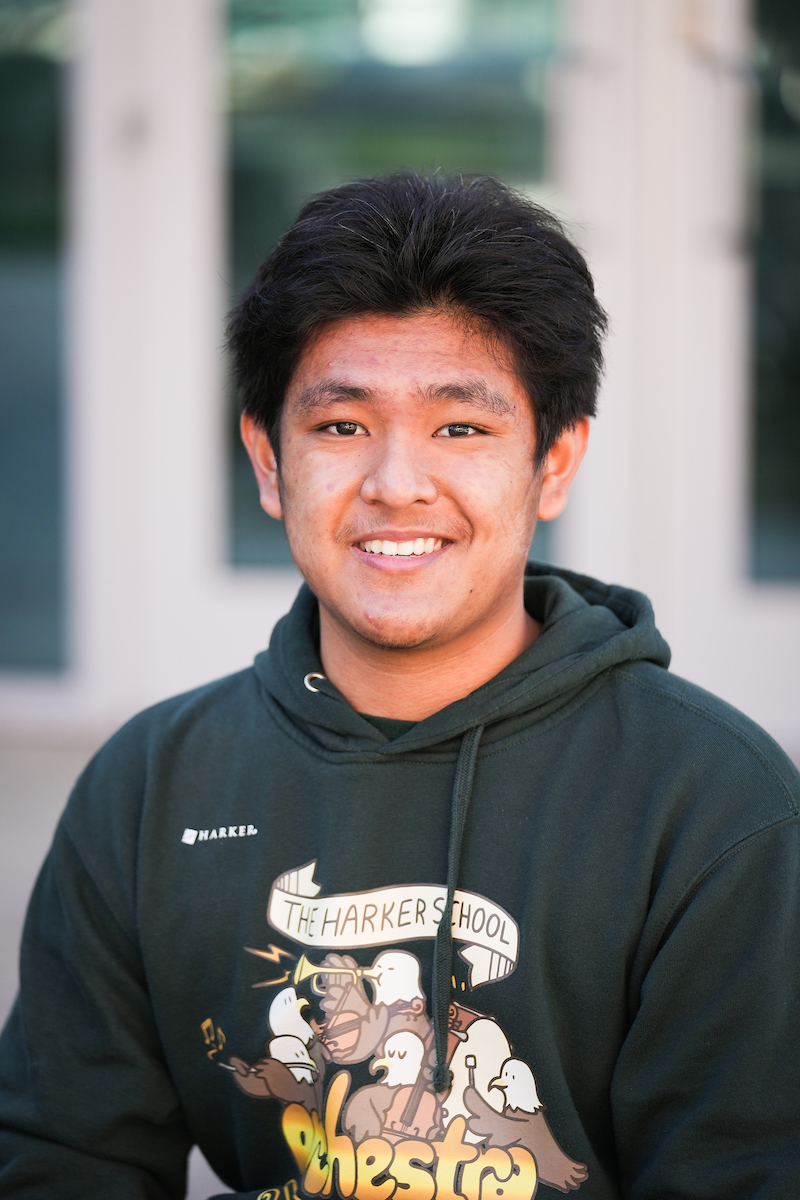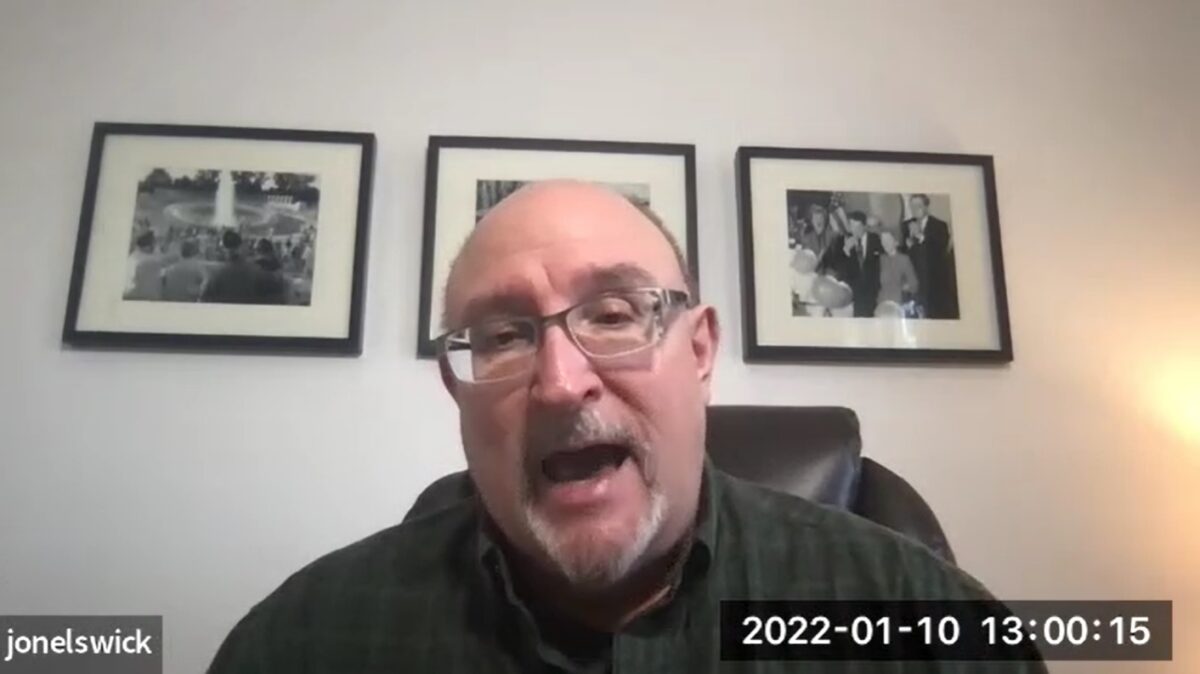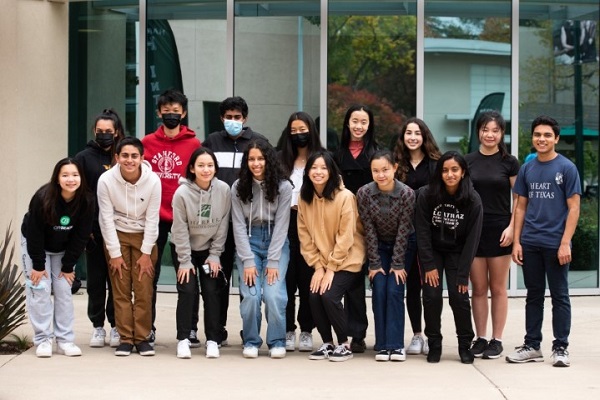Late last month, 166 Harker students were named regional winners in the 2022 Scholastic Art and Writing Awards, with 75 art awards and 91 writing awards.
alumni-express
Alumnae faculty join Cantilena for concert guest appearance
At last month’s upper school winter choral concert, women’s vocal group Cantilena was joined by three Harker alumnae who are now faculty members.
Emerald Brass Quintet reimagine and rearrange their favorites at Harker Concert Series
Emerald Brass Quintet’s clever and loving renditions of many of their favorite works were well-received by the audience at the Patil Theater at the second event of the 2021-22 Harker Concert Series season.
Three students named winners of Award for Aspirations in Computing
Upper school singer performs at Carnegie Hall
In December, sophomore Miki Mitarai, who was a second-place winner in the fall 2020 American Protégé International Music Talent Competition, gave a performance at New York City’s Carnegie Hall.
Harker DECA has successful weekend at Career Development Conference
From Jan. 7-9 the Harker DECA chapter participated in the Silicon Valley District Career Development Conference.
Rishab Parthasarathy named Regeneron Science Talent Search finalist
On Thursday, the Society for Science and the Public announced that senior Rishab Parthasarathy is among the top 40 finalists in the 2022 Regeneron Science Talent Search.
Journalism students speak with AP photo editor who covered US Capitol riot
On Monday, Harker journalism students spoke via Zoom with Jon Elswick, the Associated Press photo editor based in Washington, D.C., whose team covered the riot at the U.S. Capitol on Jan. 6 of last year.
Two students win silver in Ocean Awareness Contest
Michelle Wei, grade 10, and Helen Gu, grade 8, recently won Silver Awards for their submissions to the 2021 Ocean Awareness Contest.
Speech and debate enjoys successful fall semester
Harker speech and debate has had a wonderful first semester. Across 16 tournaments, students in all of the events have earned prestigious awards.
